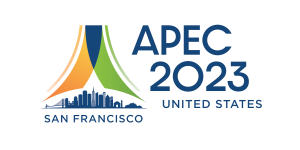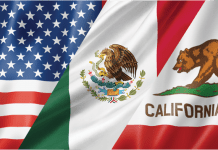 San Francisco Mayor London Breed is preparing the city to host the Asia-Pacific Economic Cooperation (APEC) Leaders Meeting this November and has announced honorary APEC Committee members, including California Lieutenant Governor Eleni Kounalakis, who will serve as APEC Host Committee finance chair.
San Francisco Mayor London Breed is preparing the city to host the Asia-Pacific Economic Cooperation (APEC) Leaders Meeting this November and has announced honorary APEC Committee members, including California Lieutenant Governor Eleni Kounalakis, who will serve as APEC Host Committee finance chair.
Leading up to November, Mayor Breed and the Office of Protocol will host events for civic and business leaders to support the city’s sponsorship goal, providing the necessary support for APEC 2023 that is expected to draw approximately 500 global CEOs, 1,000 media representatives, and nearly 30,000 delegates from across APEC’s member economies.
Lt. Governor Kounalakis has noted the importance of APEC being held in San Francisco, not only for the city, but for the state and country as well. Leaders from around the Asia-Pacific region, will be in attendance alongside U.S. President Joe Biden and Vice President Kamala Harris.
The November APEC meeting will be the largest convening of world leaders in San Francisco since the United Nations Charter was signed in 1945 during the UN Conference on International Organization.
The APEC 2023 theme is “Creating a Resilient and Sustainable Future for All,” which the forum plans to achieve through three drivers of economic growth: trade and investment; innovation and digitalization; and strong, balanced, secure, sustainable, and inclusive growth.
For more information about the APEC 2023 Leaders’ Week, visit www.APEC2023SF.org.
Sponsorship Opportunities
For information regarding sponsorship opportunities, please reach out to the San Francisco Mayor’s Office of Protocol: Maryam Muduroglu and Meron Foster.
Or fill out the form at Get Involved — APEC Leaders’ Meeting 2023.
APEC Business Advisory Council Chair
In July 2022, Dominic Ng, Chairman and CEO of East West Bank, was appointed by President Joe Biden to chair the APEC Business Advisory Council (ABAC) during the United States’ APEC host year in 2023. In this role, Mr. Ng has been working closely with other ABAC members on recommendations reflecting the perspectives of key APEC stakeholders that they will present to APEC Leaders during APEC Economic Leaders’ Week in November.
East West Bank is represented on the California Chamber of Commerce Board of Directors.
Created in 1995, ABAC consists of up to three business representatives from each APEC economy and is a key component of APEC’s multi-stakeholder approach to trade and economic policies. ABAC members are appointed by their respective Presidents or Prime Ministers. Throughout the year, ABAC meets to discuss policy recommendations and undertakes activities to promote trade and investment as well as sustainable and inclusive growth.
APEC CEO Summit
The APEC CEO Summit will take place in San Francisco, November 15–17, overlapping with the Leaders Summit. The Summit will bring approximately 1,200 CEOs, thought leaders, and other stakeholders together with political leaders from the Asia-Pacific for three days of robust dialogue and engagement on global challenges, including climate change, equitable growth, global health, and supply chain resilience that are shaping economic, environmental, and societal trends in the region.
More information on the CEO Summit can be found at APEC CEO Summit 2023.
APEC Facts
Formed in 1989, APEC serves as a multilateral forum in which Asian and Pacific economies can solve economic problems and cooperate in developing key economic sectors. The APEC economies are: Australia, Brunei Darussalam, Canada, Chile, People’s Republic of China, Hong Kong, Indonesia, Japan, Republic of Korea, Malaysia, Mexico, New Zealand, Papua New Guinea, Peru, Republic of the Philippines, Russia, Singapore, Chinese Taipei, Thailand, United States and Vietnam.
The 21 APEC economies represent approximately 60% of world gross domestic product (GDP), nearly 50% of world trade and 40% of the global population.
APEC commitments to promoting regional economic integration and trade, making trade and business easier across borders, supply chain connectivity, energy efficiency and renewables, and making sure growth is inclusive for everyone have seen great benefits for the region thus far as regional trade has increased multifold, with tariffs falling dramatically.
According to APEC, growth has soared in the region with real GDP and per capita income increasing, lifting millions out of poverty and creating a flourishing middle class.
California-APEC Trade
In 2022, California exported $129.89 billion to APEC, 10.4% of the national total. Of total California exports to APEC, 22.8% consisted of computer and electronics ($29.66 billion). Other top exports included non-electrical machinery, transportation equipment, processed foods and chemicals. California imported $406.13 billion from APEC in 2022, 30.8% of which was made up of computers and electronic products.
Other top imports included transportation equipment, electrical equipment, miscellaneous manufactured goods, and non-electrical machinery. In 2022, California was the top importing state from APEC and the second largest exporting state to the region.
CalChamber Position
The CalChamber, in keeping with longstanding policy, enthusiastically supports free trade worldwide, expansion of international trade and investment, fair and equitable market access for California products abroad and elimination of disincentives that impede the international competitiveness of California business. New multilateral, sectoral and regional trade agreements ensure that the United States may continue to gain access to world markets, resulting in an improved economy and additional employment of Americans.
The APEC is important as a vehicle for all Asia-Pacific economic integration.
This regional group sets a high standard that will enhance the competitiveness of the countries that are part of it and help facilitate trade and promote investment among them, increasing their economic growth and development.
Staff Contact: Susanne T. Stirling

